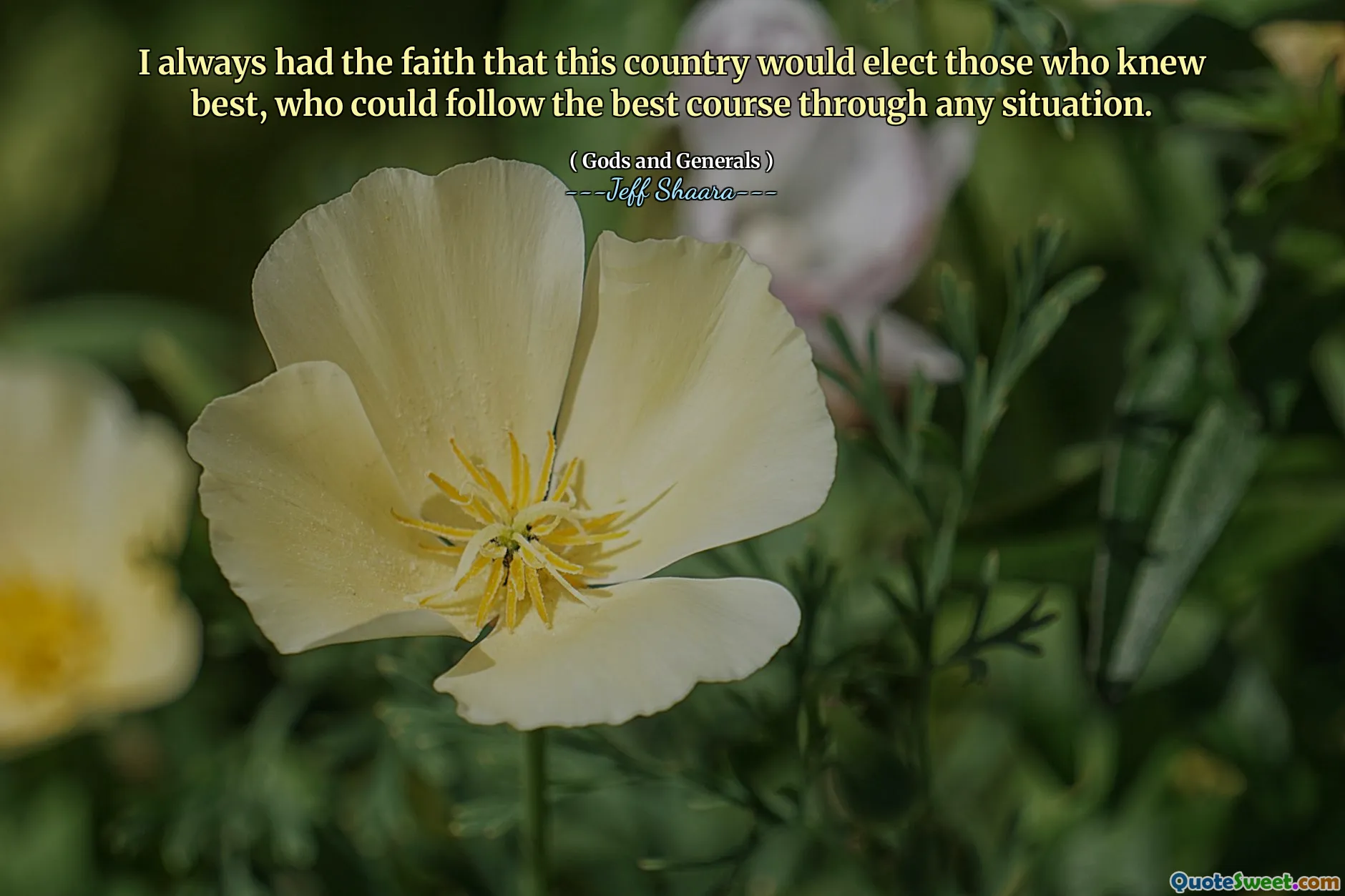
I always had the faith that this country would elect those who knew best, who could follow the best course through any situation.
This quote reflects a deep trust in the discerning judgment of the American electorate and their faith in leadership that demonstrates wisdom and adaptability. It evokes a belief that, despite the complexities and uncertainties inherent in governance and societal challenges, the people have an innate capacity to choose leaders who are most capable of navigating through adversity with integrity and prudence. Such a perspective assumes an optimistic view of democracy—the idea that voters are ultimately equipped to discern merit and make informed decisions based on the best interests of the nation. However, this viewpoint also invites contemplation about the qualities that define 'those who knew best' and whether collective judgment can always be relied upon, especially in times of widespread misinformation or polarization. The quote suggests a hope that the democratic process leads to the selection of competent, visionary leaders capable of steering through any situation, be it peace or conflict.
In a historical context, as suggested by the book '(Gods and Generals)' by Jeff Shaara, this sentiment echoes the aspirations of a nation seeking stability and moral clarity during tumultuous periods. Leadership, especially in times of crisis, must be rooted in wisdom and the ability to adapt, qualities that a true statesman or leader embodies. This belief also underscores a civic faith in democratic institutions and the judgment of voters, trusting that collective decision-making results in choosing those best suited for difficult circumstances. As societies evolve, the ideal that leaders are 'the best' remains a compelling foundation for democratic hope and responsibility, reminding us of the importance of prudent judgment and moral integrity in governance.






